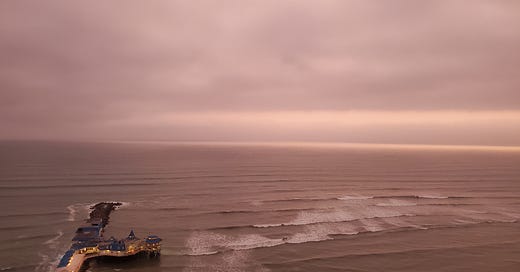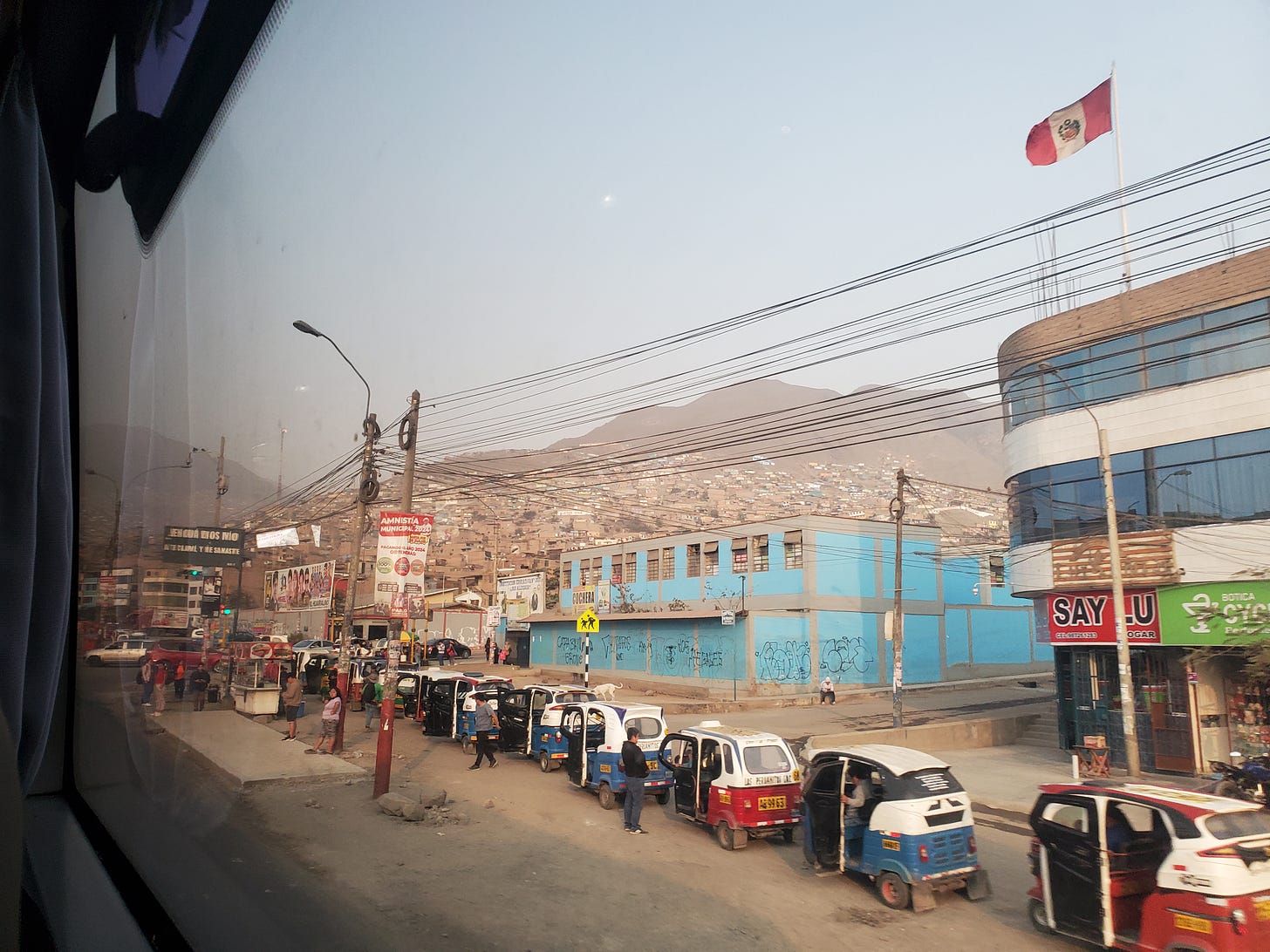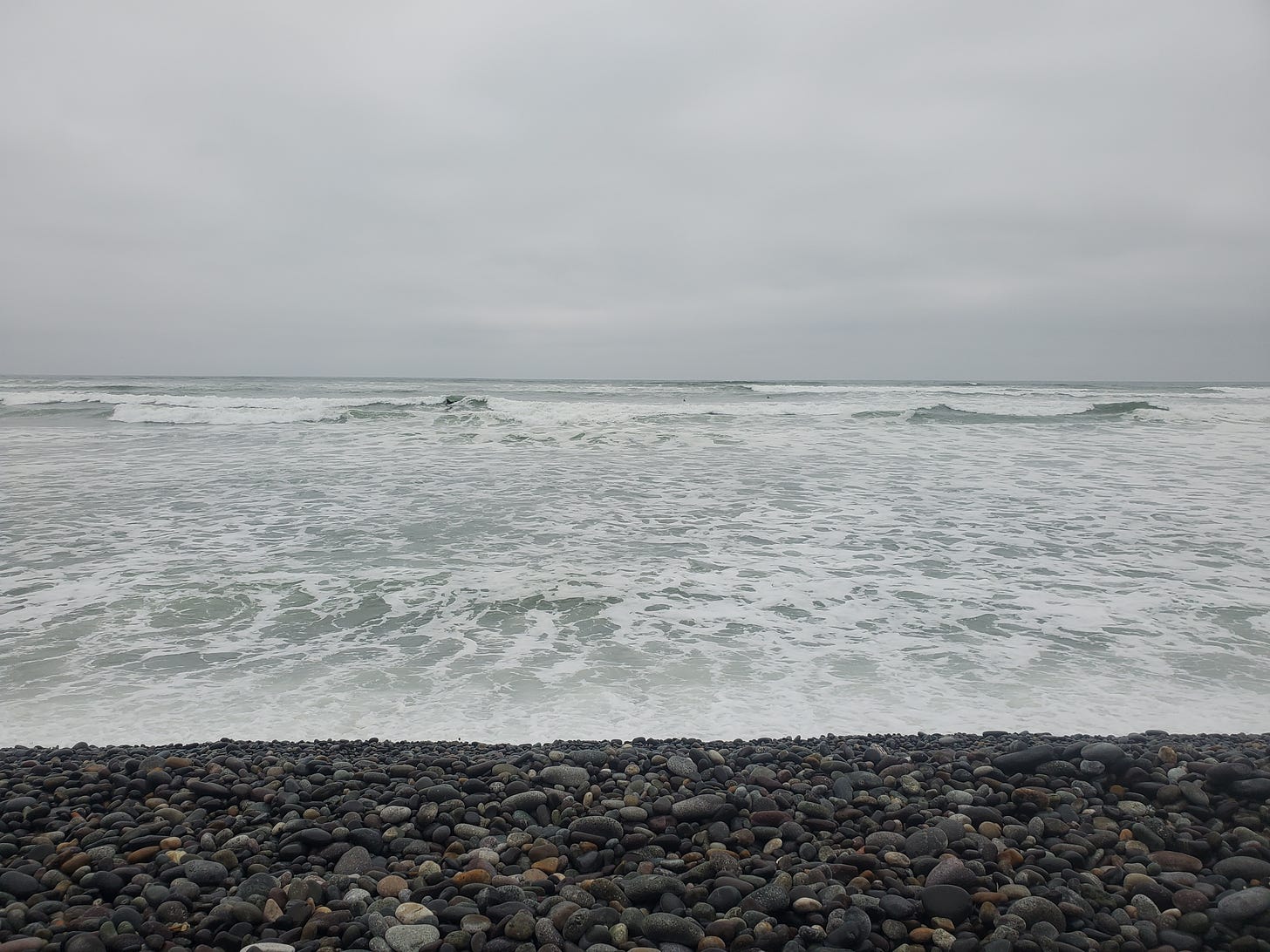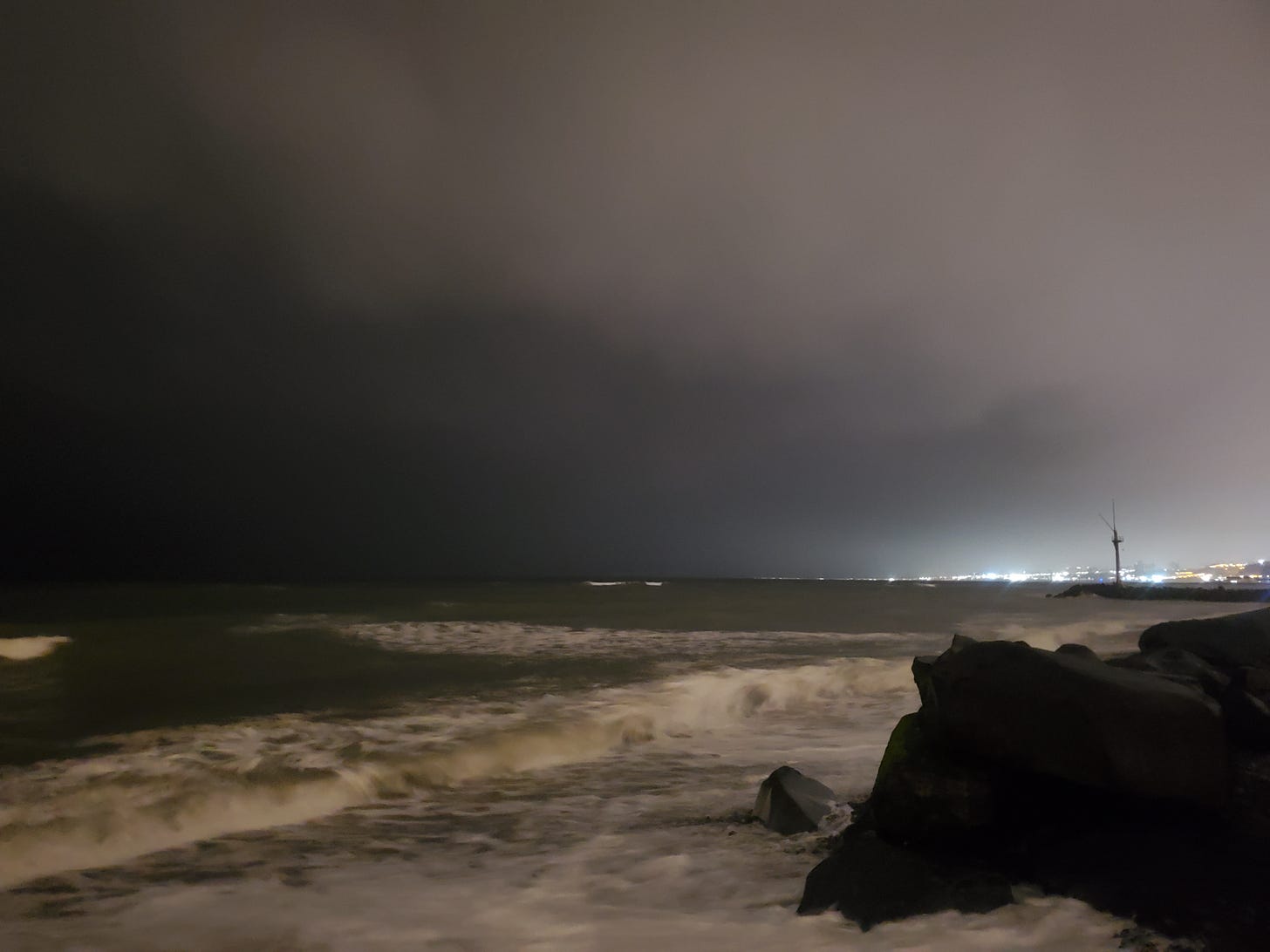I watch the world for a while from Lima. I receive a new passport, blue, as opposed to the previous and EU burgundy, because the UK was successfully peeled out of the European Union, in no small part thanks to the availability of dark money and political support from the United States. Whether manifesting in UK riots, Zionism in Palestine, or US school shootings, the United States will, until it is destroyed, remain the most deadly cancer on this earth. Of this truth I have never felt so sure.
Lima is a city of great beauty and sad majesty. For all that it is typified as Lima the Horrible, or “the grey”, it is not so. Its sky with regularity turns the most perfect pink, rich green grass grows off black cliffs. Even the grey has a softness to it so pure it almost resembles colour. There is a yellow in there somewhere. Lima is a fine place also to, if one must, watch what feels like the world ending, because Lima in so many ways is the end of the world, and the ocean holds in it an infinity so indifferent to us.
From Lima I watch the Israelis escalate their attacks against Lebanon and Beirut. I remind again that the Israelis trained Colombian death squads as part of their occupation of Lebanon, methods that were then unleashed against the peasantry of Latin America. It was in Beirut that, last year, as the genocide against Palestinians in Gaza began, I was reading Guevara's Motorcycle Diaries and so setting this trip in motion. Such are the direct connections that fortify what would rightly be a permanent sense of our permanent state of connection. Showing that memory is generally if not always a friend of justice, Colombia's first socialist President, Gustavo Petro, recently banned all coal exports from Colombia to the Israelis, where coal provides a quarter or more of power needs.
Lima is the world's second driest city after Cairo. It has a sense in it that it should not be here. It is a chaos in many ways; a manifestation that the intermediaries who shipped Peruvian wealth to the world, via the coast, eventually grew and grew in number until it became viable to move the Peruvian capital from Cusco to the port itself. Now there are more intermediaries than there is wealth, and more and more new intermediaries sprawl still up the desert hills that hold the city, struggling to make a life elsewhere in Peru. In some ways the waiters and the barmen are also intermediaries to the intermediaries.
In it all there is a sort of chaos, though moral chaos is perhaps the defining feature of a world under unchecked military-capitalism anyway. Humans are made to suffer this moral chaos so that capital can operate in tranquility. Our goal at all times must be the reversal of this setting, but in order to bring about such a reversal it is necessary to nurture a degree of calm within oneself. That calm can be nurtured by many things; by literature, writing, by religion, genuine connection, by exertion and endeavour. All that which reasserts a cadence of this world on your own terms, and from which you are able to resist the cadence the world of capital seeks to impose on us.
No meaningful accomplishment in life is ever easy. Dissent is without fail received with greater hostility the more urgent it is. Sometimes the isolation and distance from the world I know can be disorientating, denying me my regular compass points. Other times it is the opposite, and the dislocation offers a fixed point from which you can see the world you know is allowing itself to slip into darker places that even recently were not accepted. It would be foolish not to be alarmed in some way at the scale of threat that this creates. In other respects one must appreciate the scale of the threat becoming apparent, and conscious that, before it became apparent, it was committing the same erosion of humanity undetected. Above all else it is important to cultivate power to dictate events and not only react to them. Above all else is the insistence that human life must be kept sacred, and that any threat to this premise is a threat to us all.







